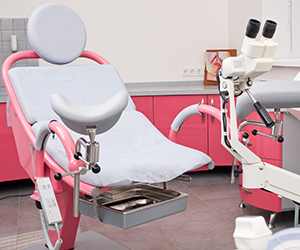Latest News Archive
Please select Category, Year, and then Month to display items
06 November 2023
|
Story MBALI MABOEA
|
Photo SUPPLIED
 The Department of Geography on the UFS Qwaqwa Campus recently played host to the Society of South African Geographers Conference (SSAG 2023), which gathered more than 100 students over three days.
The Department of Geography on the UFS Qwaqwa Campus recently played host to the Society of South African Geographers Conference (SSAG 2023), which gathered more than 100 students over three days.
Fostering academic growth, collaboration, and inspiration among students and researchers in the field of geography, the Department of Geography on the UFS Qwaqwa Campus recently played host to the Society of South African Geographers Conference (SSAG 2023), which gathered more than 100 students over three days.
Following a five-year hiatus, the three-day conference comprised student proposal presentations in different fields: human geography, environment geography, geoinformatics, and physical geography, divided into breakaway sessions over two days. Furthermore, day three of the annual conference included an excursion to the Basotho Cultural Village and Clarens.
The three-day annual student conference focused on different themes presented by two main speakers. The topic of the first keynote speaker, Dr Mahlomola Daemane, General Manager of the SANParks Arid Research Unit, focused on the contemporary conservation, transition, and relevance of science in policy and decision making.
The second keynote speaker was Dr Felicia Akinyemi, a Marie Sklodowska-Curie Research Fellow affiliated with the Institute of Geography at the University of Bern in Switzerland. Her work focuses on the intersection of geoinformatics, global change, and sustainability. Dr Akinyemi focused her talk on the integrative geospatial methods and metrics for sustainable land use. She introduced different techniques and metrics and gave students insight in early-career African research.
Speaking about the success of the conference, Nthebohiseng Sekhele, Geography Lecturer on the Qwaqwa Campus and chair of the organising committee, said, “The local organising committee was also very impressed with the quality of presentations from our postgraduate students in Geography, as well as the robust discussions that happened during the parallel sessions in the two days of the conference. We had a positive response of physical and online participation from many universities across South Africa. We are pleased that we have achieved our goal with this conference, which is to inspire the next generation of geographers.”
Care centre goes high-tech to help sexual abuse victims
2016-11-25

The colposcope, donated by the Discovery Fund,
will be used during gynaecological examinations
to detect any irregularities.
Photo: Supplied
Rape is one of South Africa’s most pressing social problems. Rape levels in the country are often discussed and reported on, but it does not deter perpetrators from this behaviour. According to Africa Check, of the more than 42 000 rape cases reported in 2015, 15 790 were child rape cases.
In an effort to assist victims of sexual assault and rape, the University of the Free State (UFS) Department of Family Medicine adopted the Tshepong Thuthuzela Care Centre, under the leadership of UFS lecturer Dr Mariaan Kotze.
The Discovery Fund donated a colposcope to Tshepong Thuthuzela Care Centre, an instrument that works with the help of a bright light and which is used to examine victims of abuse. It has also become a standard of good practice in the assessment of child abuse worldwide. According to Dr Kotze, the new instrument will also be used for training health practitioners by rendering clinical forensic services to abuse victims.
Managing complex issues
The care centre works with between 80 and 120 victims of rape each month, a third of whom are children under 14 years of age. According to Dr Kotze, the management of child sexual abuse victims is more complex than with adults; as there is a higher chance of missing or over-diagnosing abnormalities. Also, she says, the examination process is often observed by a group of healthcare practitioners, an experience which is often intrusive and intimidating for the child. With the colposcope, the timeframe of the examination is shortened, and can be captured and viewed in real time, without the victim being present.
Best care for victims
The colposcope is a magnifier and light source used during gynaecological examinations. It is instrumental in providing the best care to victims of sexual abuse, and helps diagnose and assist in the treatment of cases of abuse. Its ability to capture and review images at the time of examination allows for retrospective research, and improves the ability of expert witnesses in court cases.